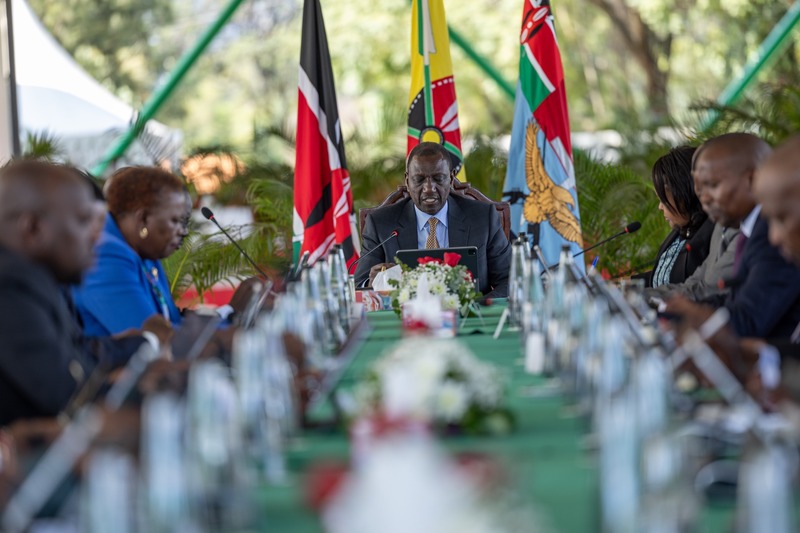Agriculture CS nominee explains GMO approach in food production

The issue of GMOs became contentious after the Cabinet in 2022 approved the farming and importation of biotechnology crops in a major policy shift that seeks to make the country food secure and contain runaway prices.
The contentious issue of genetically modified organism (GMO) seed and food security in the country confronted Agriculture Cabinet Secretary nominee Andrew Karanja on Friday.
Karanja said that GMOs are a very topical issue and that some of the GMO interventions can increase food production.
"We need to strike a balance between safety and what needs to be done. If approved, I will confront the GMO issue and do what is required according to the Biosafety Act," said Karanja.
More To Read
- Delayed GMO rollout cost Kenya Sh4.1 billion yearly - study
- Seven IEBC nominees to face vetting panel on Saturday
- Gender CS nominee Hanna Cheptumo says women killed in Airbnbs were after money
- Watch: MPs vet Gender, Culture and Arts CS nominee Hanna Cheptumo
- Public Service CS nominee Ruku proposes splitting of TSC powers to curb graft
- Nakhumicha rejects claims of Gachagua’s involvement in Sh3.7 billion KEMSA tender scandal
The issue of GMOs became contentious after the Cabinet in 2022 approved the farming and importation of biotechnology crops in a major policy shift that seeks to make the country food secure and contain runaway prices.
The approval came in the wake of a biting drought that has exposed three million Kenyans to famine in 23 counties, forcing the government to intervene with relief food. The policy shift, which will put pressure on farmers to reduce prices or face expulsion from the market, will primarily benefit firms involved in GMO seed manufacturing.
 President William Ruto holds a Cabinet meeting at State House, Nairobi, on June 11, 2024. (Photo: PCS)
President William Ruto holds a Cabinet meeting at State House, Nairobi, on June 11, 2024. (Photo: PCS)
The approval allowed imports of GMO maize that are readily available in the market at a cheaper cost to help lower the price of flour, which has now hit a high of Ksh200 for a two-kilo packet as the new government drops the subsidy scheme, which Ruto termed costly to the economy.
In considering the adoption of GMO crops, the government said it kept in mind various expert and technical reports, including those of Kenya's National Biosafety Authority (NBA), the World Health Organisation, the Food and Agriculture Organisation, the United States of America's Food and Drug Administration (FDA), and the European Food Safety Authority (EFSA).
"In accordance with the recommendation of the Task Force to review matters relating to genetically modified foods, the Cabinet vacated its earlier decision of November 8, 2012, prohibiting the open cultivation of genetically modified crops and the importation of food crops and animal feeds produced through biotechnology innovations.
The GMO issue became divisive, forcing former Agriculture and Livestock Development Cabinet Secretary Mithika Linturi to defend the government's move to lift the ban, saying there is no official research that shows that they are harmful.
"We had to make a decision whether to let our people die or adopt GMOs. I have not seen any scientifically published research in any journal where it has been said that GMOs are harmful to human beings," Linturi stated.
Top Stories Today













































